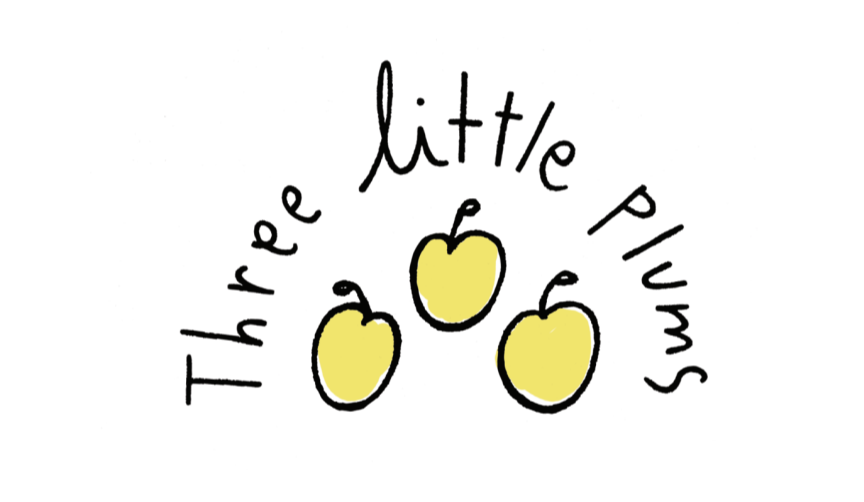Teaching Kids (and parents!) How to Recycle

Part of living a non-toxic life and of raising healthy eco conscious munchkins is teaching them how to recycle. From a very early age, munchkins can learn what kind of garbage goes into what trash bin. When they reach age 3 or 4 they start to really be interested in the concept of recycling and reusing - a perfect time to introduce fun art activities that include repurposing or recycling things around the house, or even buying toys made out of recycled plastic (like Green Toys Dump Truck and ImagiBricks 24 Giant Rainbow Blocks )
Goop recently published a super useful list of what can and cannot be recycled which I thought I would share here .... I was actually surprised to read that used disposable cups and plates cannot be recycled and not all places consider egg cartons to be recyclable!
Also, it is important to rinse any food container you plan to recycle since many time they will be sorted out if they contain a lot of food waste.
Finally, make sure you are not recycling thermal store receipts. These shiny,smooth, thermal receipts contain BPA which can contaminate the recycling system and the recycled paper that is made from the process. Throw away and wash your hands after handeling these common receipts. Even better? Tell the sales clerk you do not need a receipt (or have one emailed to you)
Did you learn anything from this list?
ALWAYS RECYCLE
GLASS
With the notable exception of Pyrex (heat resistant glass) all glass containers can be recycled.
PLASTIC
Water Bottles
Laundry Detergent Bottles
Household Cleaner Bottles
Bleach Bottles
Dish Soap Bottles
Soda & Juice Bottles
Mouthwash Bottles
Peanut Butter Containers
Salad Dressing Bottles
Vegetable Oil Bottles
Milk Jugs
Butter & Yogurt Tubs
Cereal Box Bags
Deodorant Containers
VHS & Cassette Tapes (take the film out)
Dry Cleaning Bags (many facilities are now accepting hangers as well)
PAPER
Mail
Computer Paper
Lined Paper
Construction Paper
Greeting Cards
Newspaper
Magazines
Catalogs
Phone Books
Sticky Notes
Paper Cups & Unused Paper Plates
Receipts (this does not include shiny,smooth, thermal receipts since these contain BPA which can contaminate the recycling system! Throw away and wash your hands after handeling)
CARDBOARD
Boxes
Cereal Boxes
Shoe & Gift Boxes
Toothpaste Boxes
Cardboard Tubes
File Folders
Pizza Boxes (cannot be greasy)
METAL
(Check your local facility’s rules about crushing cans–some prefer that you do, others prefer you don’t.)
Aluminum Cans
Tin Cans
Bottle Caps
Tin Foil (clean)
Not Recyclable
Styrofoam To-Go Containers (there are some advanced recycling centers that can take styrofoam, but few and far between)
Used Disposable Plates & Cups
Meat Trays
Take-Out Containers
CD Cases
Sunglasses
Nylon
Blueprint Paper
Cigarette Boxes
Waxed Paper
Laminated Paper
Pet Food Bags
Ceramics
Heat-Resistant Glass (like Pyrex)
Metal Caps & Lids
Spray Tops From Cleaning Bottles
Padded Mailing Envelopes
Compostable
Egg Cartons*
Brown Paper Bags*
Shredded Paper*
Newspaper*
Paper Towels (as long as not coated in cleaning chemicals)
Wooden Chop Sticks
Grass Clippings
Dry Leaves
Green Leaves
Tea Leaves & Bags
Cofee Grounds & Filters
Fruit & Vegetable Scraps
Plant Prunings
Crushed Eggshells
*Also recyclable in some places
Special Items
TETRAPAKS, TUPPERWARE, BABY FOOD SQUEEZE PACKS, ETC.
The New Jersey based Terracycle organizes programs for hard-to-recycle items, like baby food squeeze packs, Tetra Paks, toothbrushes, wisp flossers, Tupperware, Nespresso Capsules, Scotch Tape, shoes, wine boxes, pet food bags, pens, and more. While a few of these items can be recycled curbside, their mail-in system is a great option if your municipality doesn’t allow it.
LIGHTBULBS
Compact fluorescent bulbs contain small amounts of mercury, so it’s important to recycle them–if they break in the garbage can, that mercury gets released into the landfill. Many hardware stores, like Home Depot or Lowe’s, offer recycling for these and other hard-to-recycle items.
BATTERIES
It’s actually illegal in many areas to throw batteries in a landfill because of the chemicals that leach into the soil. Car batteries can be returned to any store that sells them. For small, household batteries, check your kids’ school or your local library, where municipalities set up recycling boxes. And if all else fails, you can always mail them in.
ELECTRONICS
Best Buy has drop-off centers for electronics (you can even bring them household appliances, like blenders or microwaves) in all of their stores. While they don’t have recycling facilities in every store, Apple offers gift cards for some old equipment–check their website to see if your local store qualifies.
For 6 basic tips for reducing and recycling including asking for no plastic cutlery when ordering food for deliver, taking your own bag to the supermarket instead of relying on their plastic or paper bags visit Goop.
